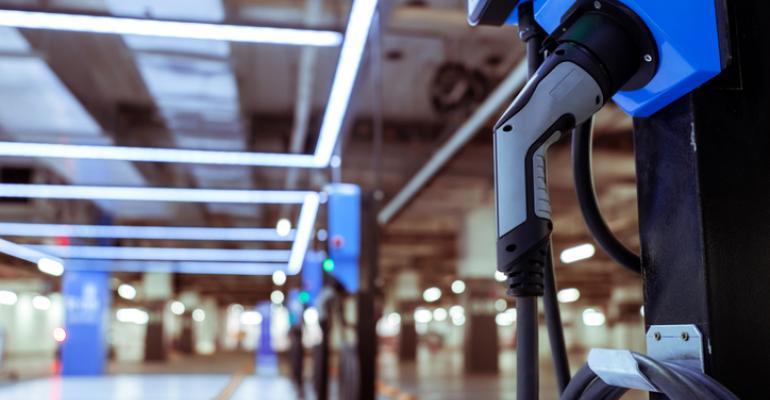A new-age shopping list for car dealerships servicing electric vehicles includes heavy-duty hoists and fireproof compartments for storing batteries.
Dealers will need those things and more because most EV owners will turn to dealerships – not independent shops or car-repair chains – for service, says Daniel Garces, Capital Automotive Finance’s senior vice president-acquisitions.
“The complexity of EVs will require dealership (service) expertise,” he says.
EVs require fewer repairs because they contain fewer moving parts (about 20 in their propulsion systems) than do cars with internal-combustion engines.
But for authorized dealers, that’s offset by capturing more service business, as many people will balk at servicing their EVs anywhere else, let alone do it themselves, he says.
Garces (pictured, below left) foresees dealerships increasing service bay numbers to handle a growing EV business. “There is a tremendous opportunity for market growth,” he says during an online presentation hosted by the American International Automobile Dealers Assn.
 His list of EV equipment for dealerships starts with Level 2 and 3 chargers.
His list of EV equipment for dealerships starts with Level 2 and 3 chargers.
“They are major items to install,” he says. “Ford just announced it wants its dealers to have three chargers available to the public, not just customers.”
That can raise risk possibilities, such as a driver en route to a charger bumping into an inventory vehicle. “There are a lot of implications of offering public chargers at dealerships,” Garces says.
Ford’s luxury brand, Lincoln, wants its dealers to invest $900,000 on EV upgrades, mainly in-house and public chargers.
A high-grade Level 3 charger can cost $80,000 to $180,000, Garces says.
Also on his shopping list are wider service lifts with higher weight capacity. That’s because EVs are heavy, mainly due to their battery packs.
Those lifts cost $20,000 to $30,000. They’re equipped with an elevator-like device to safely remove batteries.
Battery quarantine containers, costing $20,000 to $45,000, are required for storage of potentially defective batteries that could explode, he says, citing a recalled Chevy Bolt that burst into flames, damaging a nearby Maserati and Hyundai.
Special tools and related items will cost an EV repair facility $20,000 to $40,000.
Total cost per dealership to be EV-repair ready: $56,000 to $650,000, according to Garces.
He also offers dealers an EV action plan. Among its recommendations:
- Fully vet quotes provided by manufacturers’ third-party infrastructure partners. Consider contracting the work independently to save money.
- Consider battery quarantine best practices. Prepare for regulations centered on the safe handling of batteries.
- Communicate with manufacturers regarding updates, new requirements and incentives. “Dealers should talk to their CPA to make sure they get all the incentives,” Garces says. That includes potential ones from utility companies regarding extra energy needs. “Some utilities provide incentives, some don’t.”





